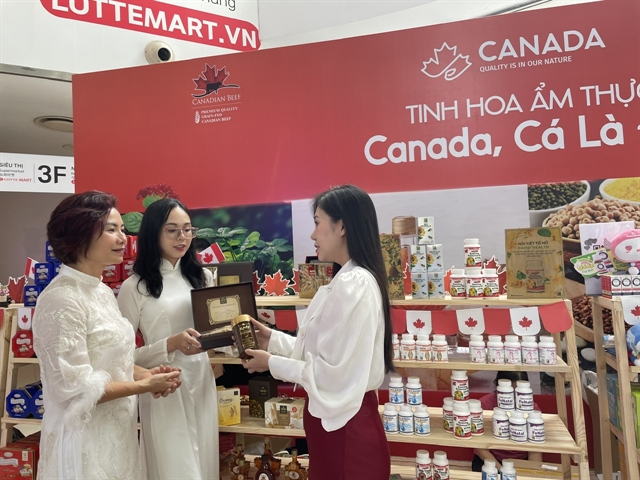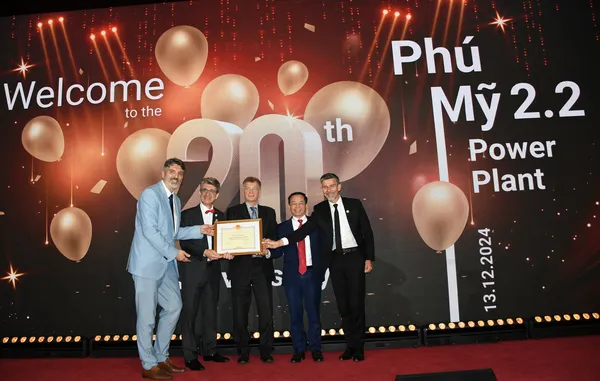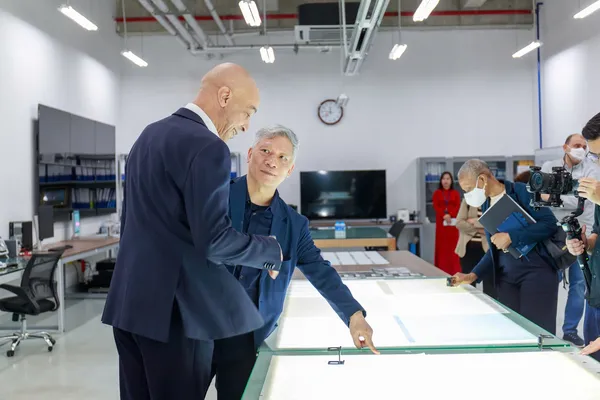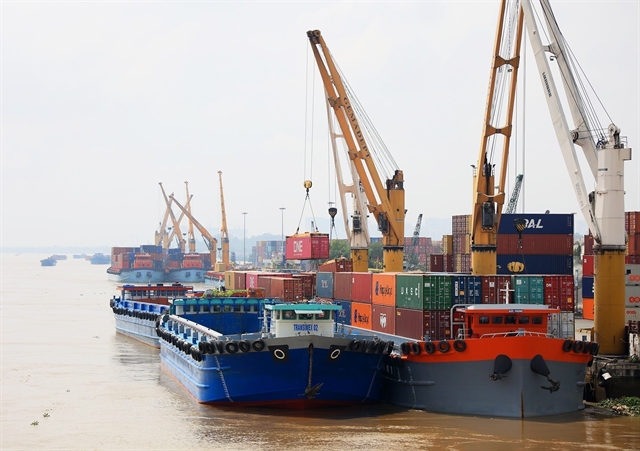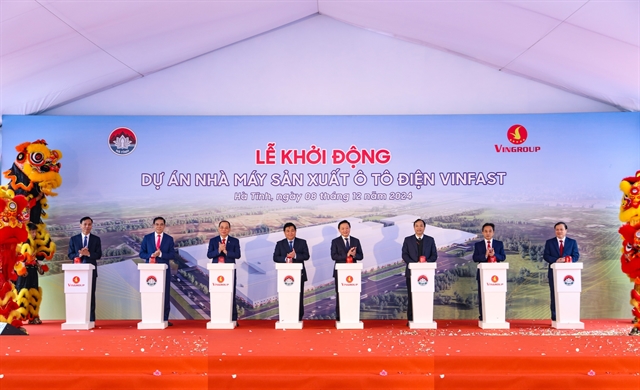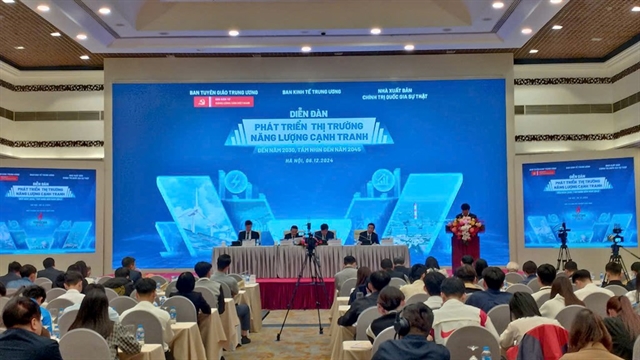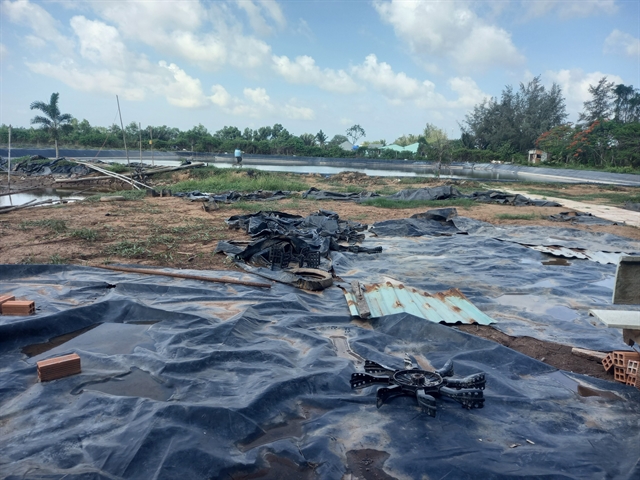

A Hungarian man and a Vietnamese woman who got married have cycled from Hungary to Việt Nam. The journey of around eleven thousand kilometres was from his home in Europe to hers in south-east Asia.
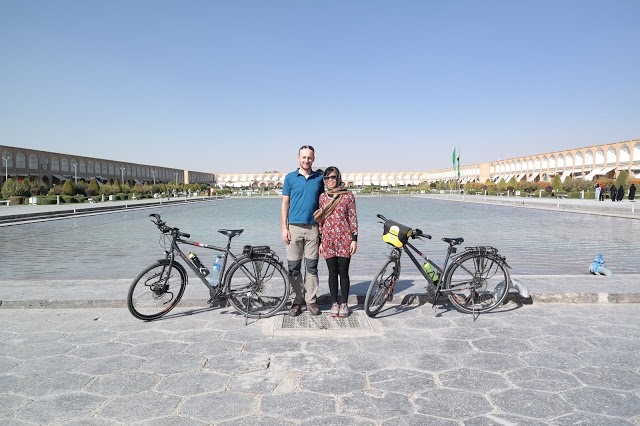 |
| We were here: The couple in Isfahan, Iran. |
A Hungarian man and a Vietnamese woman who got married have cycled from Hungary to Việt Nam.
The journey of around eleven thousand kilometres was from his home in Europe to hers in south-east Asia.
Their trip took them a year and they travelled through twelve countries.
Sometimes people they met gave them gifts to wish them well for their marriage.
A year-long cycling trip from Hungary to Việt Nam expands horizons and strengthen bonds and understanding. Hồng Vân has an endearing story.
As love stories go, there was nothing particularly surprising about Hungarian Peter Sas and Vietnamese Đồng Thị Hương Linh meeting and tying the knot after a period of courtship.
Happens all the time.
However, that the affair started in Thái Nguyên Province is somewhat unusual. It is not often that a foreign exchange student chooses to do study in a locality based on his love for tea. The fact that the affair picked up again in Finland is a bit of a surprise too.
But what the couple did for their honeymoon a year after getting married makes their story something to write home about.
So, this love story begins in 2011, when Sas first came to Việt Nam under a student-exchange programme. The tea lover chose Thái Nguyên, the country’s largest tea producing province. He spent six months at Thái Nguyên University, where Linh was studying Environmental Engineering.
“I had visited several tea farms before yet the methods I saw at home and from tea connoisseurs were different from Việt Nam.
“In India and Nepal, people boil it with milk; in China, locals steep tea only for a few seconds for a light taste.
“But there, everyday, locals use way more tea leaves for one pot than anywhere else, and the leaves are well-steeped for a few minutes. The strongest and most bitter green tea can only be found in Việt Nam. The fresh tea is also unique here.”
After finishing his stint, Sas returned home, to Hungary, not knowing if he would meet Linh again.
“It was fate that six months after he left, I got a scholarship to pursue a masters degree in Finland. Sas then travelled from Hungary to Finland to see me, a day after I arrived,” said Linh.
In Finland, the relationship blossomed and led to marriage in 2015. But it was in 2014, in a pub in Hungary, that the seeds of an unusual honeymoon were sowed.
“The idea evoked slowly. We were in a pub, calculating how much money we had, how far we could travel and by which means of transport. Slowly, an idea came to me. Why don’t we do it on a bicycle, as I’d seen many others cycling around the world,” said Sas.
“We checked our finances, how big challenge we wanted… and then we decided that we would go from my home (Győr) to her home in Việt Nam. This route motivated us a lot, especially Linh, as it would be the first time she returned to Việt Nam since our marriage.”
Before starting off, the couple went on two biking trips around Europe, each lasting a week, so as to test their equipment and durability.
They eventually set off from Győr in August 2016. Despite preparing well, things get difficult.
“During the first week, I was mentally weak,” said Linh.
Sas had to encourage his wife a lot.
“From the next week, biking became a routine, just the destinations changed.” said Linh. |
Iran, unmatched hospitality
To prepare for the trip, the couple spent half a year researching, reading reviews and learning from the experience of cyclists; and making logistics purchases.
They cycled through Hungary, Croatia, Bosnia and Herzegovina, Montenegro, Albania, Greece, Iran, the United Arab Emirates, Sri Lanka, India, Nepal, and China before arriving at Linh’s home in August this year.
"With this trip, we have been through many difficult situations together: when one got sick and we couldn’t find any hospital; travelling through a sandstorm in Iran; experiencing other harsh weather conditions together. This made us understand the other much better," said Linh.
No day was like another, but the general rule was to cycle in the morning, sightsee from 3 to 4pm, and finding lodging.
“Finding lodging was always stressful, but still a fun and interesting part of the day. We often roamed around, talking to random people. We found different solutions in different countries,” said Sas.
“In Europe, sometimes yes, sometimes no. In India, locals would show cheap hotels for us and in China, police were very helpful in finding accommodation for us,” Linh said.
“Most of the time in China, we went to the police to ask a place to camp. They found a hotel for us and sometimes even bargained for us or dropped us in a fancy hotel and offered us to stay there for free. Once, the police invited us to have dinner and we enjoyed the meal in a canteen with lots of police officers,” said Linh.
Meanwhile, in Iran, locals were willing to host whenever the couple asked.
“In the two months in Iran, we stayed either with locals or in the mosque. Every time we asked, there was always something we could find,” said Linh.
“The local hosts never charged us for lodging. If we tried to pay, they would get angry. Sometimes they even gave us money, jewellery and lots of gifts when they learnt we were on our honeymoon.
“From the first day, we enjoyed their kindness, and when our days were hard, we were down, there was always someone coming to help us out and make our day unbelievable.
“We have to tell people that it’s all wrong in the media. Iran is super safe and friendly. We didn’t have any problem during our stay here, not even the slightest,” said Linh.
Interacting with kids
“It’s interesting that in almost all countries we passed through, we had a chance to stay at a local school, either with a teacher or principal,” said Linh.
First we just asked for a place to camp and the dean would offer us to stay in the dormitory. We wanted to know more about their education system, so we asked them to arrange some meetings with students. I learn a lot from students about their education system.
As Linh had worked as a tutor for several years, she always wanted to talk to students and the youth, who “always have ideas to share".
“They are open minded, so are we. Peter and I both want to know different opinions,” said Linh.
In Nepal, India and China, Linh contacted local schools to arrange English classes for a few days when they stayed in a village.
“The villages that we’ve been to were remote and had not seen many foreigners, so the teachers were willing to arrange for us to meet with students and let me take some classes,” Linh said.
During the short time spent with children, Linh spoke to them about sorting trash and the need to protect the environment.
Now, she wants Vietnamese attitudes about young people going on adventurous trips to change. “We want to inspire people about travelling. Our culture doesn’t encourage kids to go far. It is a pity. I want to tell (Vietnamese) parents and kids that there are so many places to see and that once they go, they will learn much more about real life, about sharing and caring, just like us,” said Linh. — VNS
GLOSSARY
As love stories go, there was nothing particularly surprising about Hungarian Peter Sas and Vietnamese Đồng Thị Hương Linh meeting and tying the knot after a period of courtship.
Tying the knot means getting married.
Courtship happens when two people become interested in one another and get to know one another romantically.
It is not often that a foreign exchange student chooses to do study in a locality based on his love for tea.
A foreign exchange student is a student from another country who comes to your country for a year, or a semester, to attend school while someone from your community does the same by visiting that person’s country.
But what the couple did for their honeymoon a year after getting married makes their story something to write home about.
A honeymoon is a holiday a newly-married couple take after their wedding.
“I had visited several tea farms before yet the methods I saw at home and from tea connoisseurs were different from Việt Nam.
Connoisseurs are people who know a lot about something.
“But there, every day, locals use way more tea leaves for one pot than anywhere else, and the leaves are well-steeped for a few minutes.
Well-steeped means well soaked.
The fresh tea is also unique here.”
If something is unique there is only one of it.
After finishing his stint, Sas returned home, to Hungary, not knowing if he would meet Linh again.
A stint is a time of doing something that is over once the task is complete.
“It was fate that six months after he left, I got a scholarship to pursue a masters degree in Finland.”
Fate is what happens, whether it is planned or not.
A scholarship is an award that goes to someone who has done well at something to help them pay for further studies.
To pursue a master’s degree means to follow up with doing one.
In Finland, the relationship blossomed and led to marriage in 2015.
If a relationship blossomed it grew into something beautiful, like a flower does.
But it was in 2014, in a pub in Hungary, that the seeds of an unusual honeymoon were sowed.
When seeds are sowed, the beginning of something is started.
“We were in a pub, calculating how much money we had, how far we could travel and by which means of transport.”
Calculating means working out.
“This route motivated us a lot, especially Linh, as it would be the first time she returned to Việt Nam since our marriage.”
When something motivates you it make you want to carry on doing something.
Before starting off, the couple went on two biking trips around Europe, each lasting a week, so as to test their equipment and durability.
If equipment has durability it can last a long time through all sorts of conditions, such as harsh weather.
“During the first week, I was mentally weak,” said Linh.
Mentally means to do with the mind.
“From the next week, biking became a routine, just the destinations changed,” said Linh.
A routine is a way of living that involves doing the same things at the same time, every day or on certain days.
To prepare for the trip, the couple spent half a year researching, reading reviews and learning from the experience of cyclists; and making logistics purchases.
Reviews are reports that people have written about how they enjoyed, or did not enjoy things.
Logistics means getting things from one place to another. Purchases are acts of buying.
No day was like another, but the general rule was to cycle in the morning, sightsee from 3 to 4pm, and finding lodging.
Lodging means a place to sleep.
“Finding lodging was always stressful, but still a fun and interesting part of the day.”
If finding lodging is stressful it put lots of mental pressure on you.
“We often roamed around, talking to random people.”
Random people are people who you come across here and there rather than in any special order.
“They found a hotel for us and sometimes even bargained for us or dropped us in a fancy hotel and offered us to stay there for free.”
To bargain means to negotiate for a price.
“Once, the police invited us to have dinner and we enjoyed the meal in a canteen with lots of police officers,” said Linh.
A canteen is an eating hall at an office or a factory.
First we just asked for a place to camp and the dean would offer us to stay in the dormitory.
A dormitory is a room in which many people sleep.
As Linh had worked as a tutor for several years, she always wanted to talk to students and the youth, who “always have ideas to share".
A tutor is a private teacher.
“They are open minded, so are we. Peter and I both want to know different opinions,” said Linh.
To be open minded means to accept that the many different opinions that many different people have on things are not necessarily all bad.
“The villages that we’ve been to were remote and had not seen many foreigners, so the teachers were willing to arrange for us to meet with students and let me take some classes,” Linh said.
Remote means far away from anywhere.
“We want to inspire people about travelling.”
When people are inspired they get energy to go out and do something creative.
WORKSHEET
Find words that mean the following in the Word Search:
I | t | f | r | c | p | a | h | n | i | p | o |
a | p | r | d | o | q | n | e | p | a | l | f |
l | n | c | y | u | t | f | h | y | a | p | r |
b | h | l | a | r | s | a | m | k | n | k | k |
a | g | y | v | t | v | y | r | m | a | i | s |
n | w | r | a | o | c | q | t | a | c | w | c |
i | o | h | a | n | n | e | s | b | u | r | g |
a | u | g | u | s | t | e | x | c | f | k | e |
m | u | g | a | b | e | c | r | d | n | q | b |
b | a | p | n | h | v | p | d | m | v | o | r |
1. Iran; 2. Paks; 3. Nepal; 4. August; 5. Albania.


